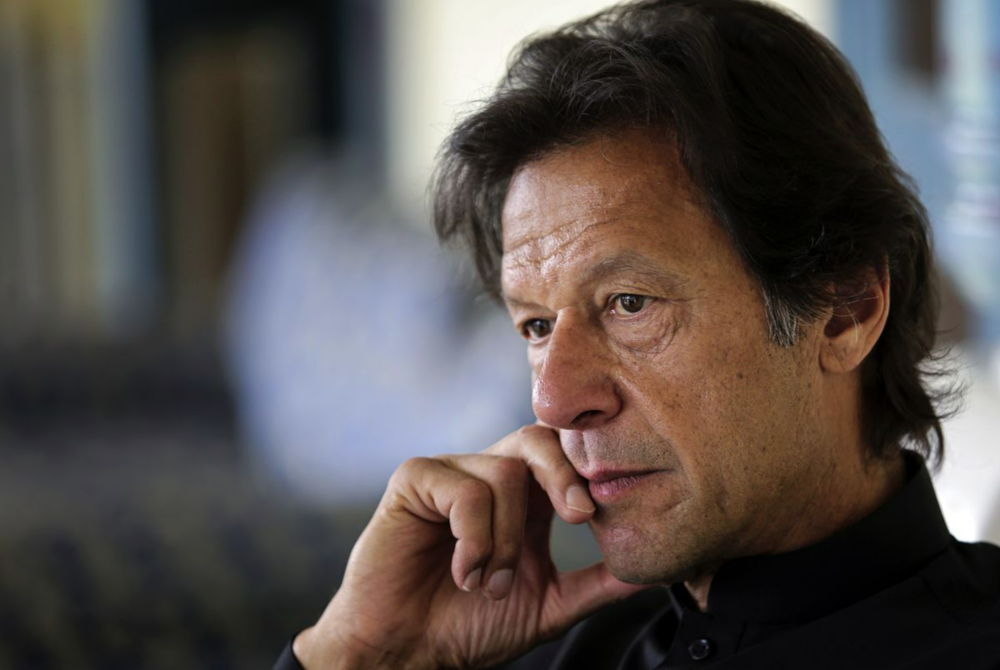Ex-Pakistan PM Khan gets bail extended again in graft case

ISLAMABAD - Former Pakistan prime minister Imran Khan's bail on corruption charges was extended again Monday, after he urged supporters to take to the streets if he is re-arrested.
Khan's brief detention last month on graft charges sparked days of deadly violence as thousands of his followers rampaged through cities, setting fire to buildings and clashing with police.
He was freed from custody after the Supreme Court declared the arrest illegal, but he says the government still plans to detain him to quash his momentum ahead of elections due by October.
"They believe that people will sit as silent spectators when they put me in jail," the 70-year-old said in a live-streamed address late Sunday night.
"Death is much better than subjugation. Make up your minds against fear. You have to stand up, peaceful protest is your right," he said.
On Monday, a special corruption court in Islamabad extended bail for Khan and his wife Bushra Bibi until July 4.
He was also bailed in 15 other cases before three courts, said Gohar Khan, a member of his legal team.
Since he was ousted by a no-confidence vote in parliament last year, Khan has waged an unprecedented campaign against Pakistan's powerful military. Supporters viewed his May 9 arrest as payback for that defiance.
Following the former cricket star's release, his Pakistan Tehreek-e-Insaf (PTI) party has suffered a major crackdown including widespread arrests.
The government of Prime Minister Shehbaz Sharif accuses Khan of orchestrating anti-state violence and has pledged to try some protesters in military courts.
"These cases are anti democratic," Khan told a judge in an anti-terrorism court in Islamabad where he faced eight cases on Monday.
"I have never incited my supporters to violence," he added. "Peaceful protest is a democratic right." - Crackdown on critics - Khan remains far and away the most popular politician in Pakistan.
But after repeated detentions much of the key PTI leadership has defected, and numerous journalists sympathetic to the opposition leader are reported to have disappeared into custody.
On Thursday, Amnesty International said it is "extremely concerned with the crackdown on voices critical of the state and military".
Khan says the protest violence was a false-flag campaign to justify suppression of his party.
But he seems increasingly isolated in his mansion in the eastern city of Lahore, venturing out only for regular appearances in a slew of court cases which have plagued him since he left office.
Analysts say legal challenges are often deployed by those in power in Pakistan to stifle dissent.
Khan rose to power in 2018 on a wave of popular support, an anti-corruption manifesto, and the backing of the powerful military establishment.
When he was ousted, analysts said it was because he lost the backing of the top generals.
In his campaign for re-election Khan has highlighted the power the top brass wield behind the scenes -- a subject historically considered a red line in Pakistan.
His arrest came just hours after he repeated an allegation that a top general was a co-plotter in a November assassination bid which saw him shot in the leg. ZAIN JANJUA/AFP









